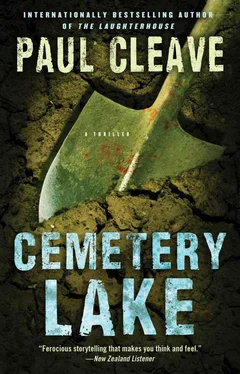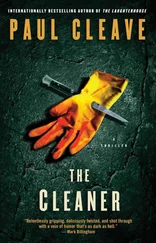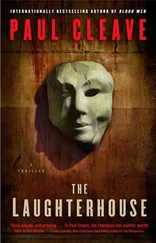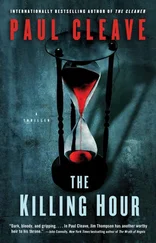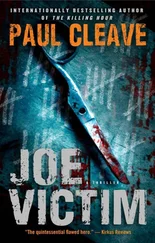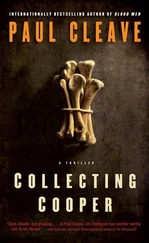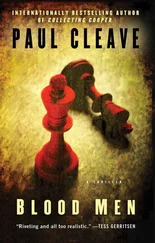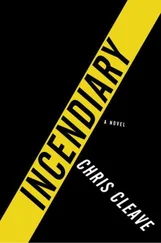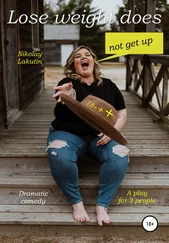Paul Cleave - Cemetery Lake
Здесь есть возможность читать онлайн «Paul Cleave - Cemetery Lake» весь текст электронной книги совершенно бесплатно (целиком полную версию без сокращений). В некоторых случаях можно слушать аудио, скачать через торрент в формате fb2 и присутствует краткое содержание. Год выпуска: 2008, ISBN: 2008, Издательство: Atria Books, Жанр: Триллер, на английском языке. Описание произведения, (предисловие) а так же отзывы посетителей доступны на портале библиотеки ЛибКат.
- Название:Cemetery Lake
- Автор:
- Издательство:Atria Books
- Жанр:
- Год:2008
- ISBN:9781451677836
- Рейтинг книги:3 / 5. Голосов: 1
-
Избранное:Добавить в избранное
- Отзывы:
-
Ваша оценка:
- 60
- 1
- 2
- 3
- 4
- 5
Cemetery Lake: краткое содержание, описание и аннотация
Предлагаем к чтению аннотацию, описание, краткое содержание или предисловие (зависит от того, что написал сам автор книги «Cemetery Lake»). Если вы не нашли необходимую информацию о книге — напишите в комментариях, мы постараемся отыскать её.
Cemetery Lake — читать онлайн бесплатно полную книгу (весь текст) целиком
Ниже представлен текст книги, разбитый по страницам. Система сохранения места последней прочитанной страницы, позволяет с удобством читать онлайн бесплатно книгу «Cemetery Lake», без необходимости каждый раз заново искать на чём Вы остановились. Поставьте закладку, и сможете в любой момент перейти на страницу, на которой закончили чтение.
Интервал:
Закладка:
“I still should have done more,” I say. “But I lost my focus.”
“You lost your family,” he says. “And you lost control. This isn’t your fault, Theo.”
“There are going to be more girls out there in those coffins, Father. Three of them. I feel it. I can’t make it right, but I also can’t let it go.”
He looks down at the floor as if there is some internal debate warring inside his head. That debate rages on for almost a minute. I don’t interrupt him. When he looks up he seems to have aged a few years. He thinks this day is hard on him, but if I drove him to Rachel Tyler’s house tomorrow to meet her parents he’d realize his day was easy in comparison.
“I suppose you could talk to his father,” he says. “He may be able to offer you something.”
I recall the article that I read about Sidney Alderman before I left my office for the morgue. The old man’s retirement last year had made the newspaper, but it wasn’t really news, it was just one of those human interest stories that are interesting to the people who knew Alderman and not to anyone else.
“Does he live nearby?”
“Closer than you can imagine,” he says. “Promise me you’ll be careful. Promise me you’re looking for Bruce to question him, not punish him.”
I shrug. “Punish him? I don’t follow you.”
Again Father Julian sighs, then slowly shakes his head. “Don’t take the law into your own hands, Theo. Vengeance is God’s, not yours-you know that. You know that better than anybody,” he says.
He follows me to the church doors and gives me directions to where I can find Sidney Alderman. I thank him and he wishes me a good night, and again he tells me to be careful. I tell him I’m always careful.
He shakes my hand before he leaves, and when he takes his away I see that he is shaking. Then he disappears back through the doors. God’s working day is still not over.
CHAPTER TEN
The rain has disappeared. For now. And the night has set in. I sit in the car with the heater going, trying to collect my thoughts, wondering why I’m chasing down Bruce the caretaker when I ought to be home chasing down some pizza with Jim the bourbon. I don’t know, maybe it’s just that my life isn’t interesting enough to be at home getting drunk in front of reruns of bad comedies and reruns of bad news that happens every day. That’s the problem with the news. The victims have different names, the presenters wear different outfits, but the stories are the same. Some of us put our hands up and say that’s enough; we try to make a difference. When I was on the job we would arrest one killer and another would appear. It was like the sorcerer’s apprentice Mickey Mouse cutting evil broomsticks in half, only to have each half grow whole and carry on doing whatever it was evil broomsticks did.
The inside of the windshield is fogging up, so I redirect the heater to take care of it. My reflection, slowly appearing on the warming glass, looks pale green from the dashboard lights. I take a small detour on the way out, heading back past the crime scene that was once a tranquil lake in the middle of a tranquil cemetery. The machinery is moving around-I can hear and see it-and I wonder what unlucky girl is being dug from the ground by a giant metal claw.
The cemetery road veers away from the machinery, from the lake, from my daughter, and toward more darkness and more trees and fewer gravestones, before taking me out onto the street. From there it’s a thirty-second drive to Alderman’s house, and most of that is taken up with hedge line views of the edge of the cemetery. There are only a few houses nearby. One is old and looks like it is ready to fall down; another looks brand new, as if it was built yesterday. I figure the houses in this area are, like many, slowly getting replaced. New replacing the old. The new then slowly becoming the old. Then the new becoming so old it becomes condemned. Hard to imagine, I guess, that any house becomes that way when it’s getting built. But I suppose the same thing happens with people too. It’s the cycle of life.
I strain to read the numbers on the mailboxes, but at last I park outside and walk up the driveway, the murky light from the streetlights detailing more of the house with every footstep. Warped siding and chipped concrete tiles, the windows smeared with grime, or cracked, the windowsills uneven. There is no garden, just grass and weeds and mud. The concrete foundation and steps leading up to the front door are flecked green with mildew, and it’s the first time I’ve become aware that concrete can actually decay. There are no lights on inside. If a house could look as if it has cancer and is in its dying stages, then it’s this one.
When I knock on the door the house creaks and I have the sudden fear it might topple over. Somebody inside yells for me to go away. I keep knocking, using the heel of my hand to keep the impact loud and annoying. Another thirty seconds go by. Then a minute.
“Jesus Christ, man, what the hell do you want?” The voice comes from behind my knocking.
It’s turning into one of those long days when I’m not in the mood for personality clashes, so instead of telling him to open up the goddamn door before I kick it in, I grab a business card, identify myself, and tell him I have a few questions.
“I’ve had questions all day,” he answers. “People only ever come to my door if they want something. I’m sick of people wanting something. How about what I want, huh? I want people to leave me the hell alone. Jesus, doesn’t it look like I want to be alone? You see any invites?”
“It won’t take long.”
“No.”
“That’s a real shame,” I say, “because it’s cold out here. I’m going to have to keep myself warm somehow, and the best way to do that is to keep pounding on your door.”
There is a small shudder as the door catches, then frees from the frame before swinging open.
The man confronting me is the man I saw pictured earlier this evening in the article about the retired caretaker. I reach out and offer Sidney Alderman my card, but he leaves me hanging.
“I know who you are,” he says. “You’re the cop who had to bury his daughter.”
He spits the comment at me as though it’s some kind of insult, and I’m unsure how to respond. The fact this man remembers me makes me shudder. Two years ago he covered Emily’s coffin with dirt. How the hell did he remember? The way he says it makes me want to hit him.
He grins, his aged face stretching dozens of wrinkles in dozens of directions. He has a few days’ worth of gray stubble; his hair is disheveled, as are his clothes. He looks like he just spent a week in the desert. If I saw him two years ago I don’t recall it. His eyes are unreadable in this light.
He smells of cheap beer and even cheaper vodka, and there is another smell there too, something I can’t identify, but it makes me think of old men hanging out in hospitals and homes gathering a collection of old diseases.
“I’m looking for your son,” I tell him.
“Only you’re not a cop anymore, are you, Tate,” he says.
“You don’t have to be a cop in this world to want to look for somebody,” I point out. “That’s why they have phone books.”
“Then let your Goddamn fingers do the walking,” he says, and starts to close the door.
I stop it with my foot.
“What happened?” he asks. “You get sick of the doughnuts?” He starts to laugh, then scratches at his belly as if he has just come up with a real humdinger. “No, they fired you, right? Why was that again?”
He keeps grinning at me. His teeth look like they haven’t seen fluoride in years.
“Sure is a nice place you got here,” I say-and hell, maybe the day isn’t long enough after all, because here comes that personality clash. “You in the middle of renovating?”
Читать дальшеИнтервал:
Закладка:
Похожие книги на «Cemetery Lake»
Представляем Вашему вниманию похожие книги на «Cemetery Lake» списком для выбора. Мы отобрали схожую по названию и смыслу литературу в надежде предоставить читателям больше вариантов отыскать новые, интересные, ещё непрочитанные произведения.
Обсуждение, отзывы о книге «Cemetery Lake» и просто собственные мнения читателей. Оставьте ваши комментарии, напишите, что Вы думаете о произведении, его смысле или главных героях. Укажите что конкретно понравилось, а что нет, и почему Вы так считаете.
